
Culture
08:01, 13-Mar-2018
The best way to recite a poem: Chant it out!
By Ai Yan
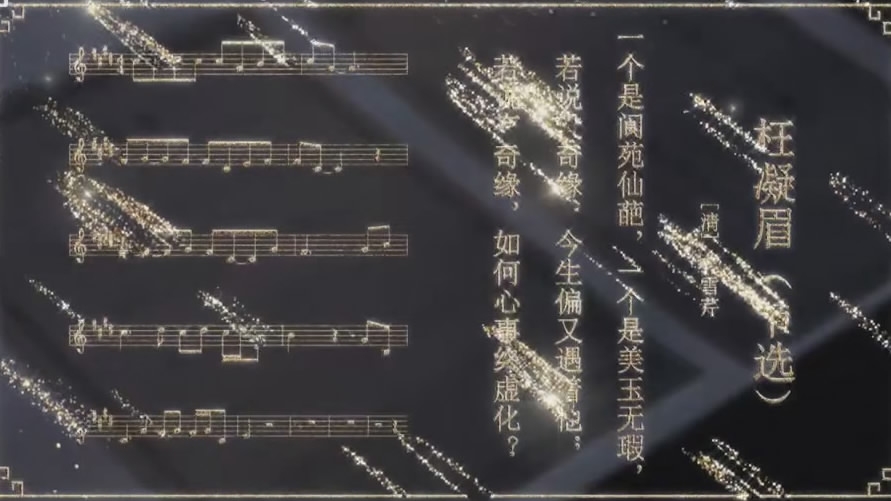
With various forms of variety shows taking turns to sweep the Chinese screens in recent years, a newly debuted music show “Everlasting Classics” have emerged to capture the attention of the Chinese audience since the Spring Festival holiday.
With pilot airing on the first day of the lunar New Year, “Everlasting Classics” produced by China Central Television (CCTV) instantly became a hot topic for Weibo goers on the country’s Twitter-like social platform.
Combining the ancient poems and various forms of music, the show invited some of China’s most renowned singers and artists to sing the poems out. Days after its debut, the show scored as high as 9.0 points on douban.com, China’s Rotten Tomato-resembled review aggregation website.
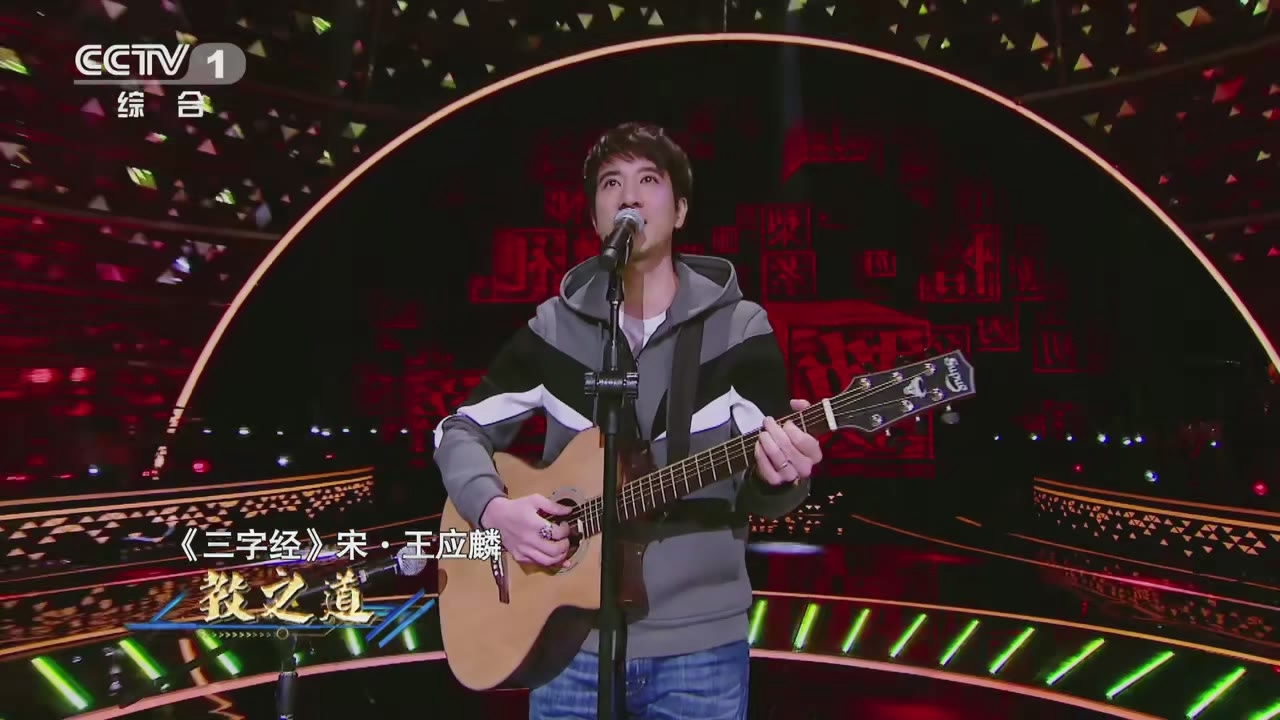
Chinese musician Wang Leehom sings on stage. /CCTV Photo
Chinese musician Wang Leehom sings on stage. /CCTV Photo
While amazed by the beautiful melodies and lyrics, many could not help wonder: What makes the show so widely welcomed?
Interweaved origin of poems and songs
Singing a poem out may not be an invention of the show’s producing team, but rather a re-discovery.
It is widely acknowledged that the classic Chinese poems have been shining through the history of Chinese literature since some 3,000 years ago.
But tracing their origins, one could easily find out that poems and songs were bounded together since the very beginning. As is recorded in the “Book of Songs”, China’s most ancient collection of poetry dating from the 11th to the seventh centuries B.C., the earliest forms of poems were either ritual or folk songs.
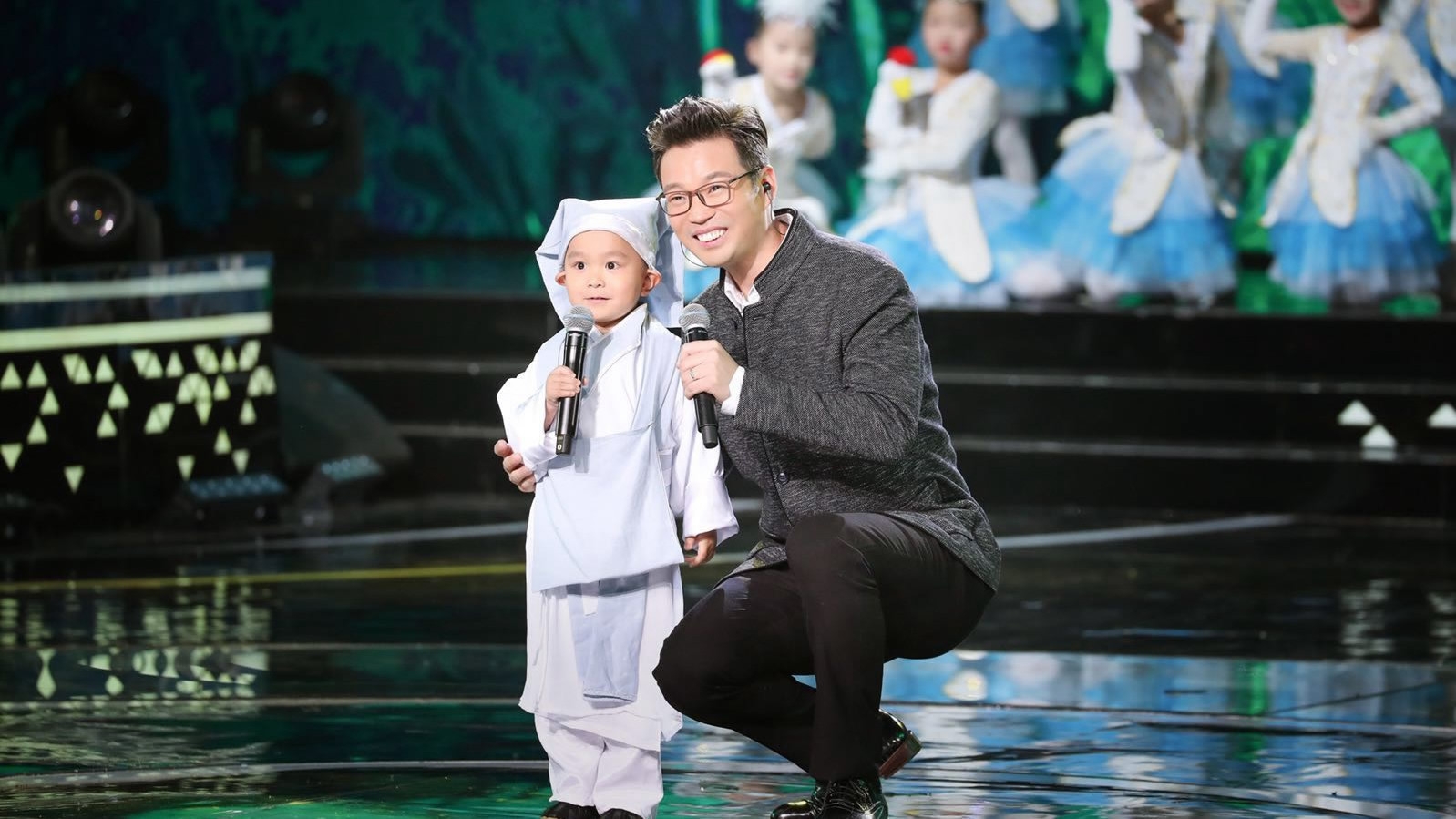
Chinese artist Wang Xun sings on stage with child at the show "Everlasting Classics". /CCTV Photo
Chinese artist Wang Xun sings on stage with child at the show "Everlasting Classics". /CCTV Photo
Even at its peak, during the Tang and Song dynasties, many of the poems have melodies to go with them, or to be accompanied by traditional Chinese instruments.
Different values for different people
The wide selection of performers-from ordinary people such as primary school teachers, children, and scholars as well as celebrities-drew much more audiences.
One of the most popular songs based on a rarely known poem was among the mostly watched clip, after being sung by primary school student Liang Yuequn from a poor village in southwest China’s Guizhou Province.
The poem, which encourages people to keep their dreams despite their humble status, found echoes in many audiences. Many took to Sina Weibo to express the sentiments it stirred in their hearts.
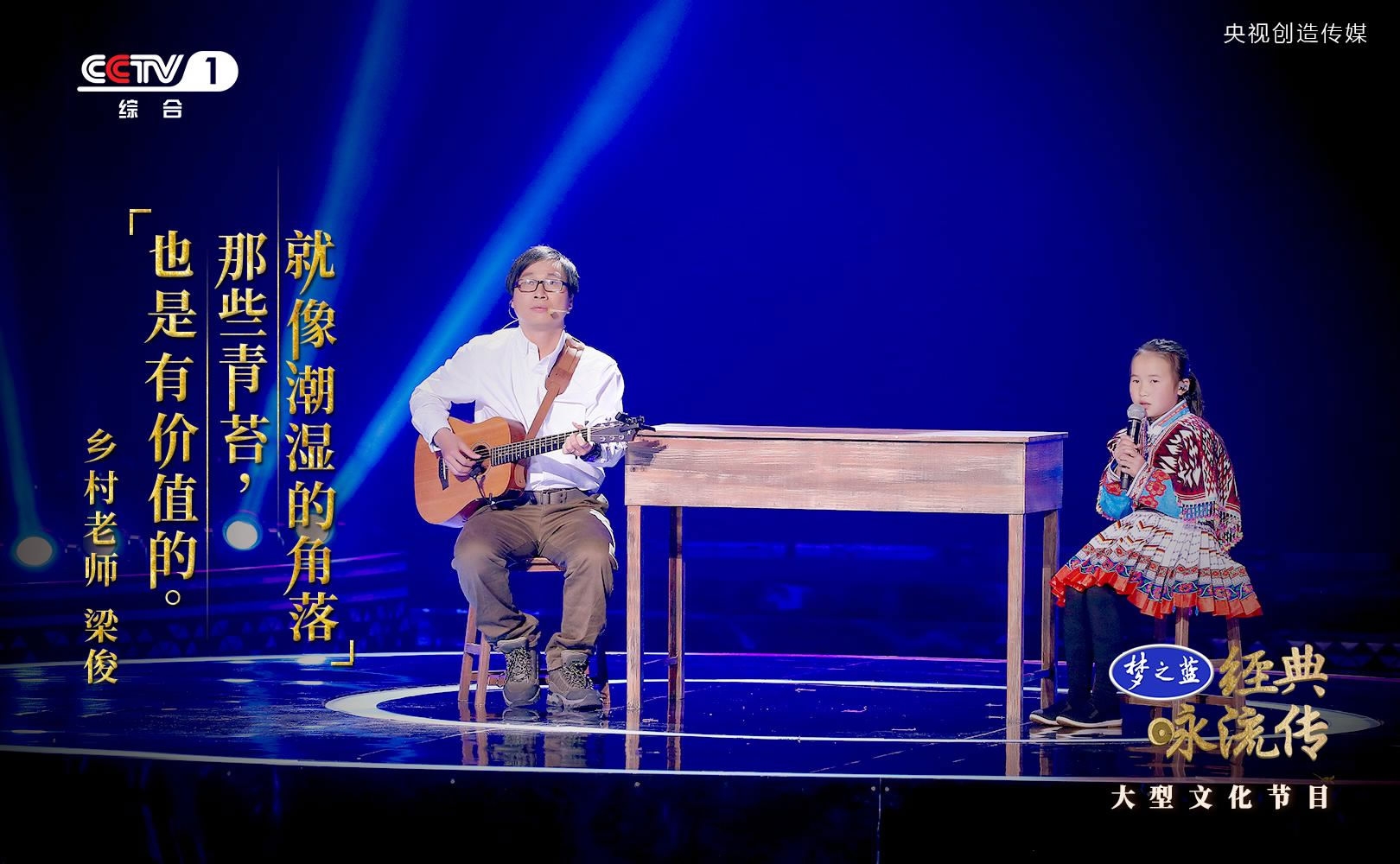
Liang Yuequn, a primary school student from Guizhou Province, sings with the accompaniment of her teacher Liang Jun. /CCTV Photo
Liang Yuequn, a primary school student from Guizhou Province, sings with the accompaniment of her teacher Liang Jun. /CCTV Photo
For many, the music and songs played to the poems helped them rediscover “the beauty of the poems’ rhythms and rhetoric”.
“When I heard the sound of the Guqin and the singer’s song, I felt like traveling back in the ancient times and seeing off a friend,” said blogger Araybellar.
For the teachers and parents, they welcomed the show for inspiring their students or children in their study.
“I recommended the show to my daughter because I believe she could learn a lot from it. And my daughter told me that her teacher made the same recommendation on the first day of their new semester,” said a Mz. Du from Xi’an City.
Experts: It is not a surprise
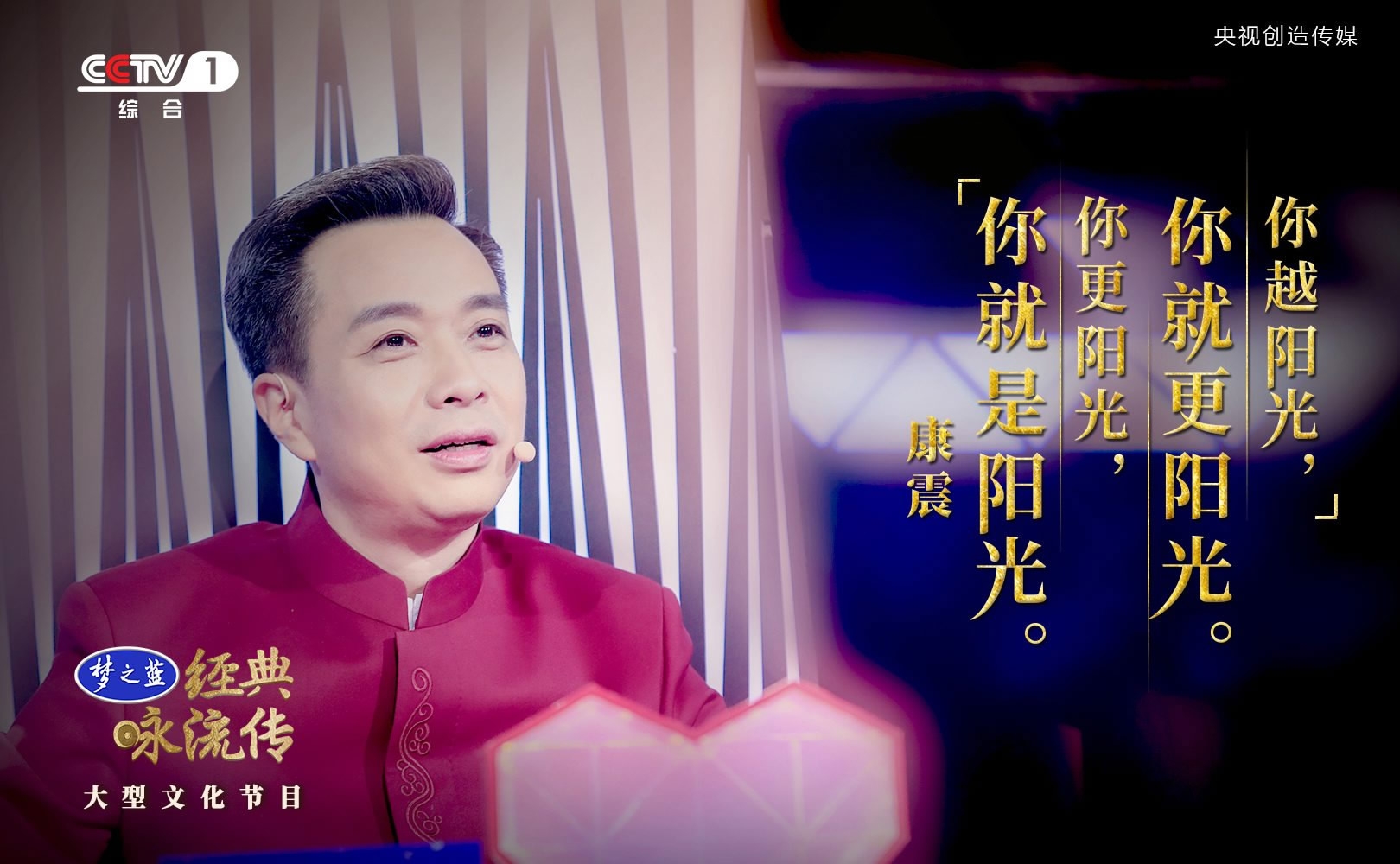
Kang Zhen, professor from Beijing Normal University, appears in the show. /CCTV Photo
Kang Zhen, professor from Beijing Normal University, appears in the show. /CCTV Photo
Except for the audience, the experts in the cultural realm also spoke highly of the program for combining various art forms and rediscovering the values of the classics.
Leng Song, an expert of communication from the Chinese Academy of Social Sciences said the show’s success lies in its combination of the trending elements and the traditional culture.
“The core of the show is to rediscover the classic works. And by bringing the pop music to the ancient poems, it has injected new life into the old culture,” said Leng.

SITEMAP
Copyright © 2018 CGTN. Beijing ICP prepared NO.16065310-3
Copyright © 2018 CGTN. Beijing ICP prepared NO.16065310-3